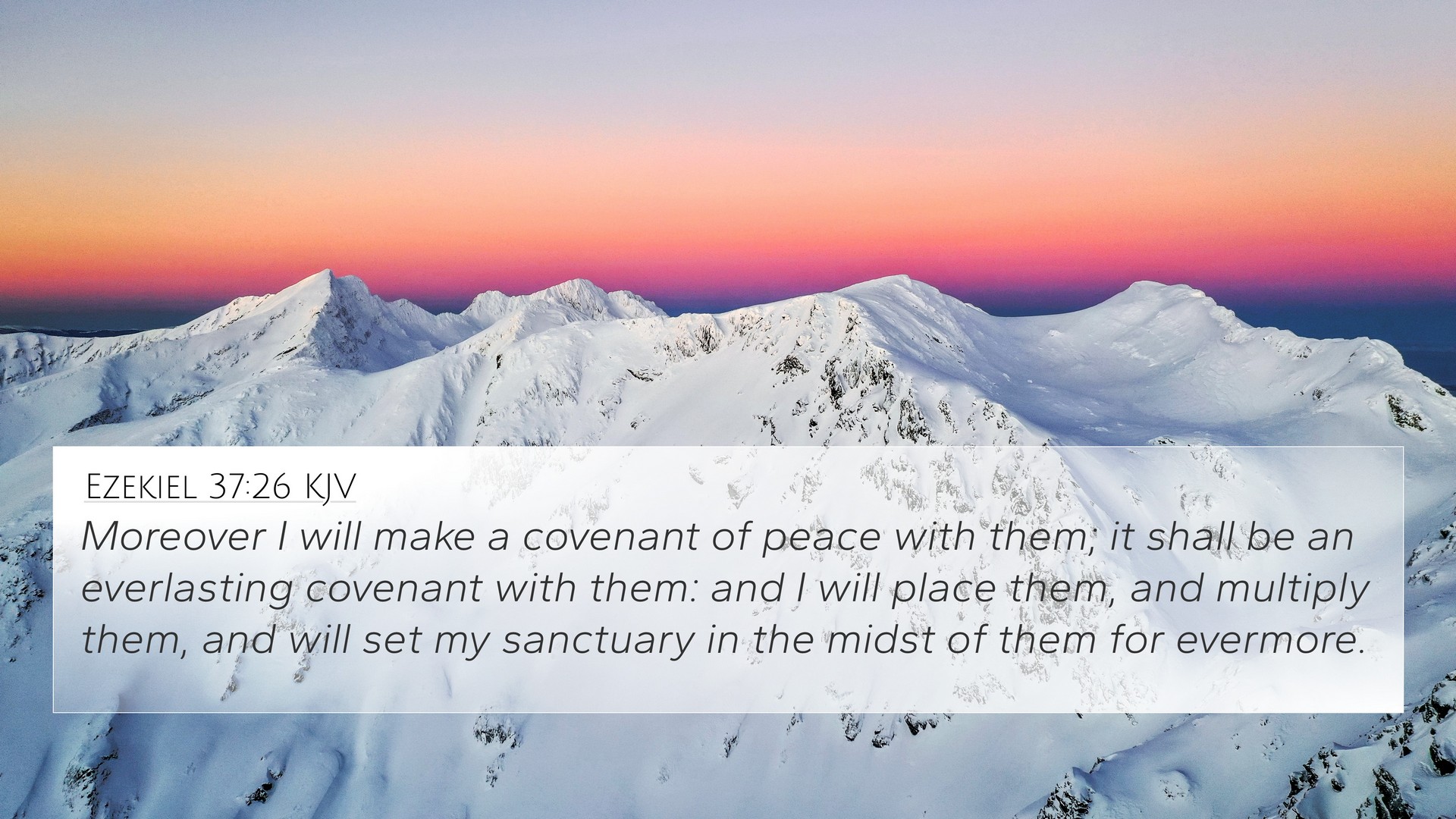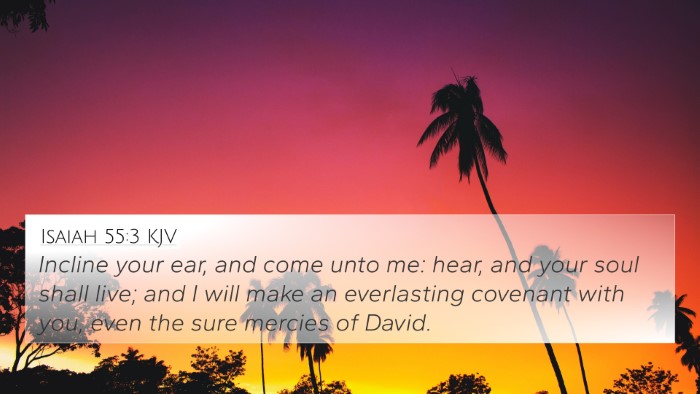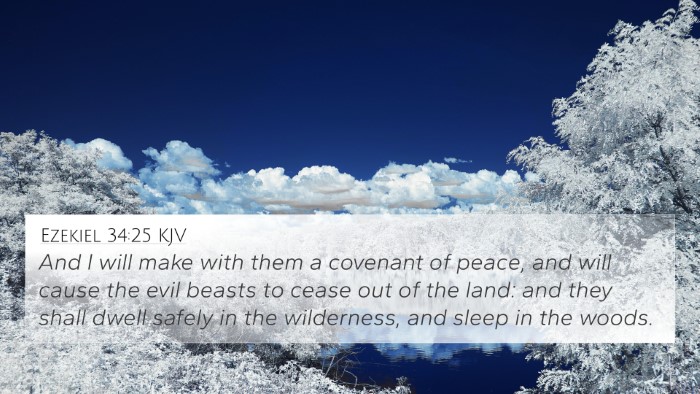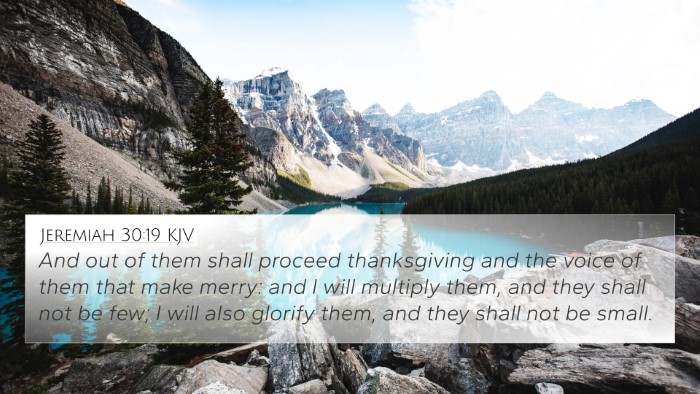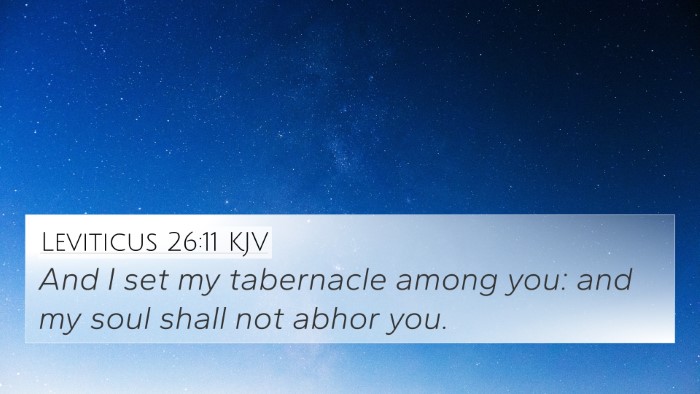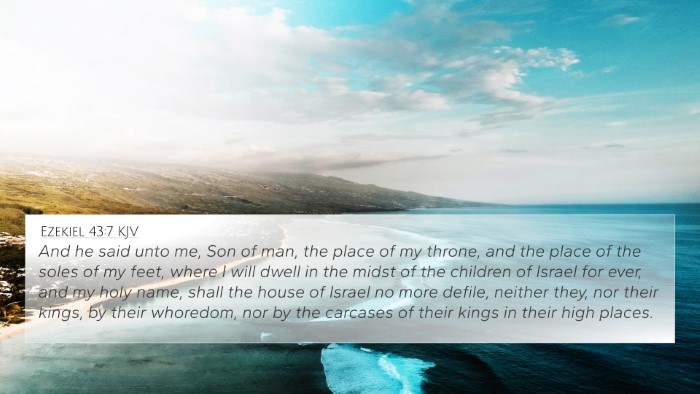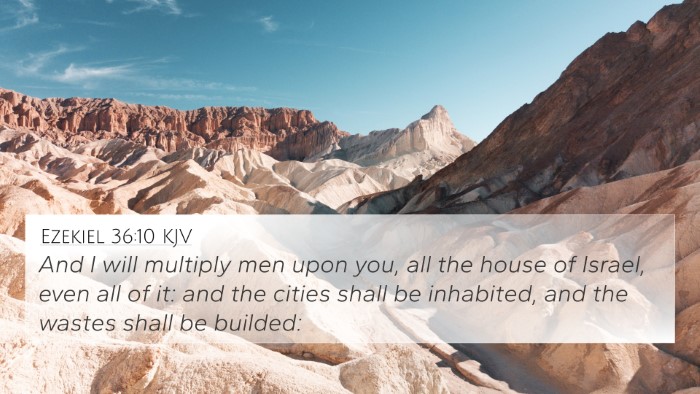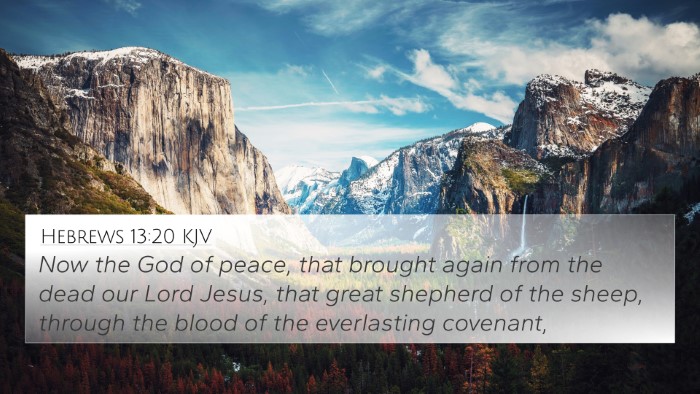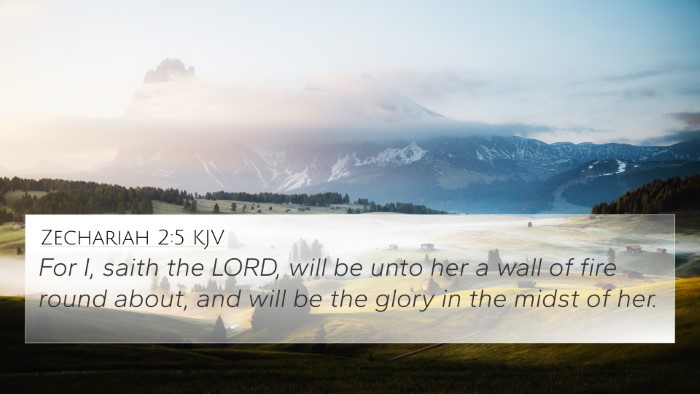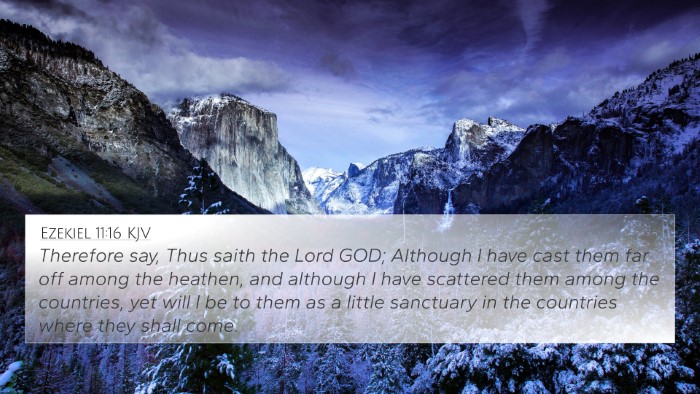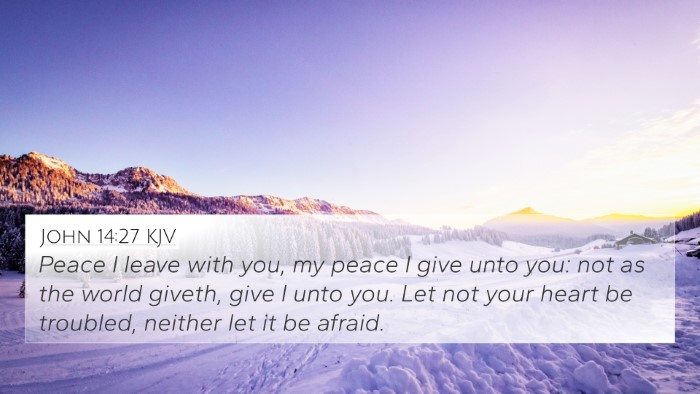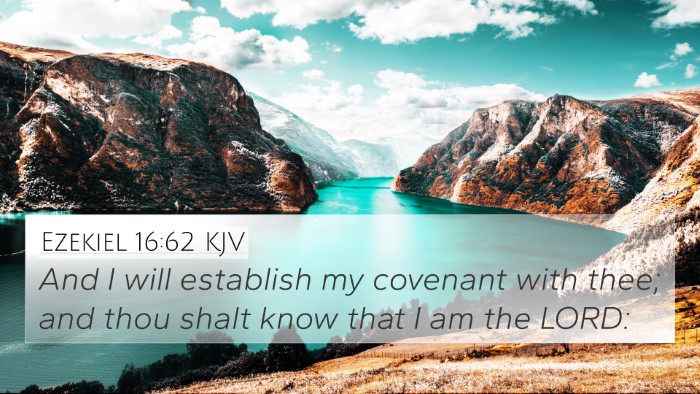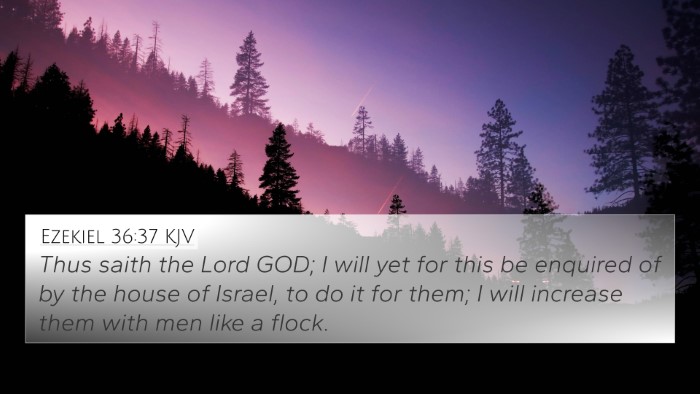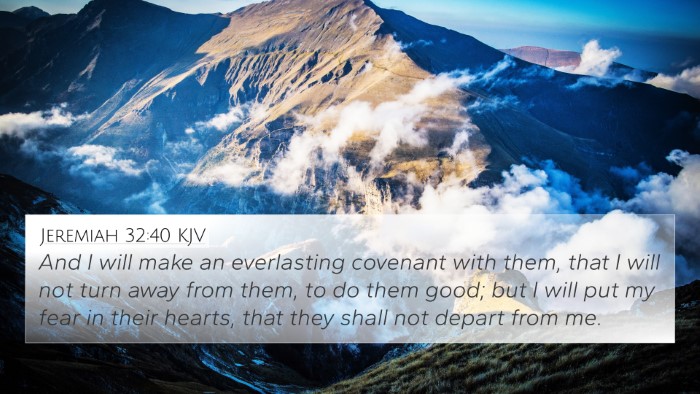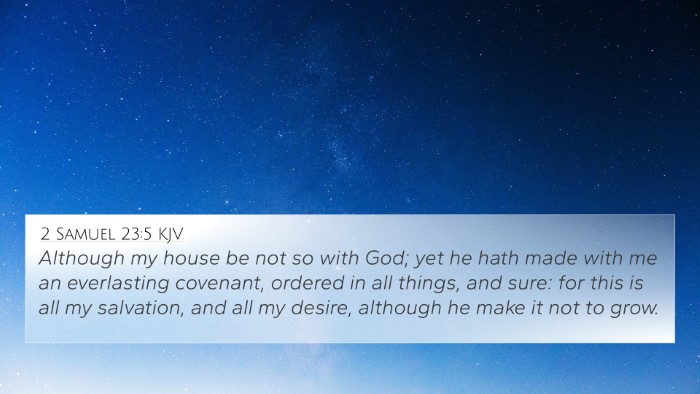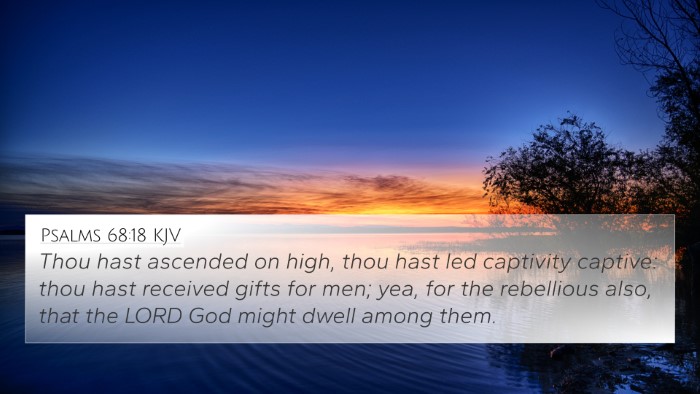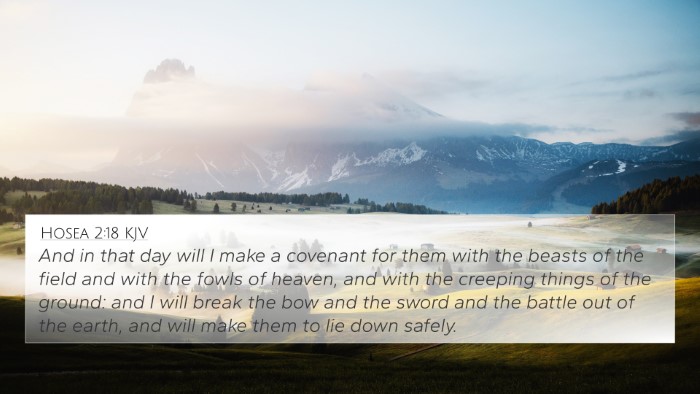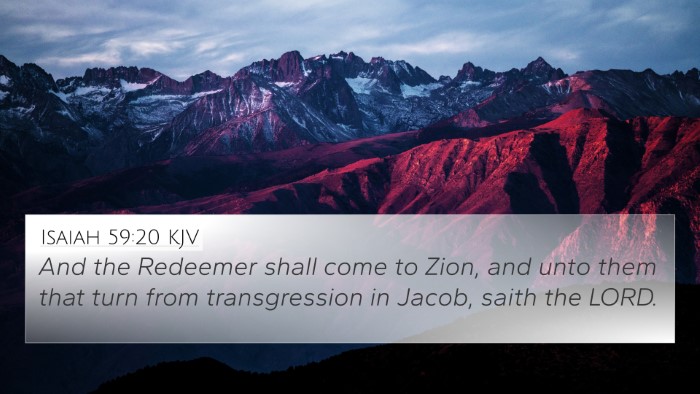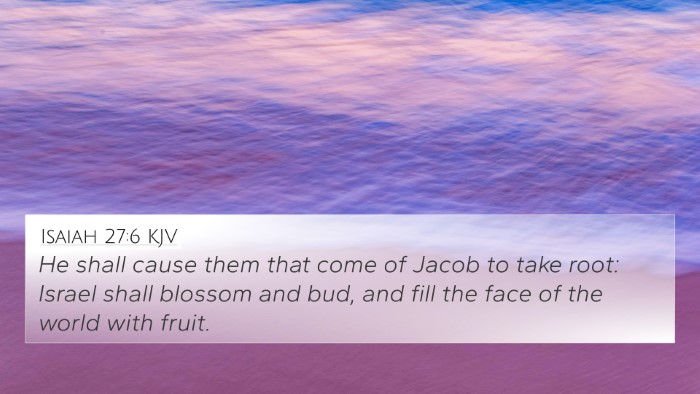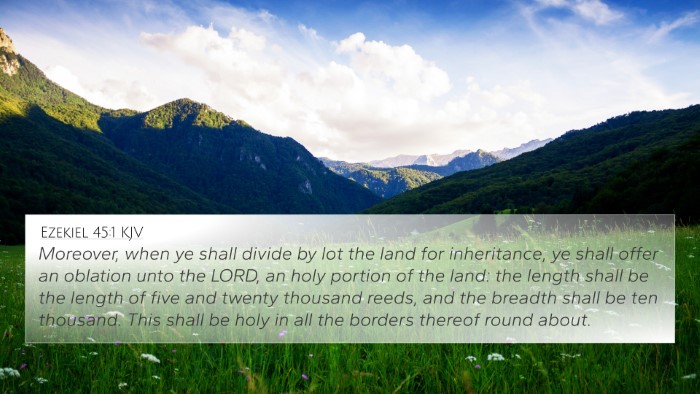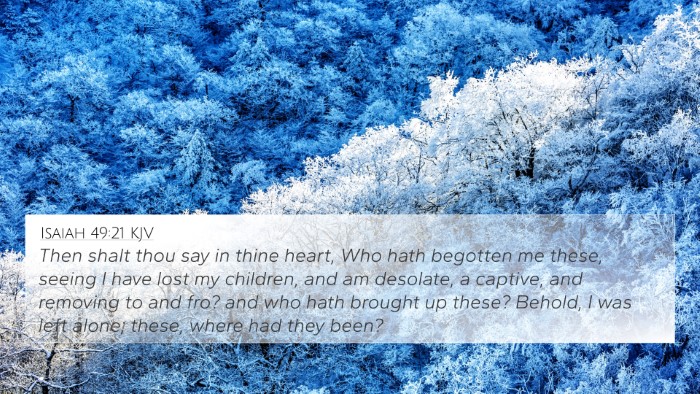Ezekiel 37:26 - Understanding the Promise of a Covenant
Ezekiel 37:26 states: "Moreover, I will make a covenant of peace with them; it shall be an everlasting covenant with them; and I will set my sanctuary in their midst forevermore."
This verse highlights the profound promise of God to His people. It embodies themes of reconciliation, peace, and a lasting relationship with the Divine. Below is a combined summary of biblical commentary insights from Matthew Henry, Albert Barnes, and Adam Clarke, providing a comprehensive understanding of this verse.
Meaning and Interpretation
The covenant mentioned in Ezekiel 37:26 signifies a divine agreement, emphasizing God's intention to establish peace with His people. The phrase "everlasting covenant" indicates that this promise transcends time, affirming the perpetual nature of God's commitments.
Insight from Matthew Henry
Matthew Henry expounds on the concept of a covenant, suggesting that it encompasses not just promises of protection and blessing, but also an obligation from the people to remain faithful to God. He highlights that this renewed relationship was to restore the bonds broken by sin and disobedience.
Insight from Albert Barnes
Albert Barnes adds that the "covenant of peace" illustrates the transformation from turmoil to tranquility, emphasizing restoration. He argues that God's dwelling among His people signifies intimacy and the presence of divine peace, essential for their spiritual well-being.
Insight from Adam Clarke
Adam Clarke elaborates on the idea that God’s "sanctuary" represents His presence amid His people, highlighting the significance of worship and communion. He stresses the importance of this covenant in the context of both historical Israel and the Christian Church, noting its fulfillment in Christ.
Key Themes in Ezekiel 37:26
- Everlasting Covenant: A promise that stands the test of time.
- Covenant of Peace: Reflects reconciliation and harmony between God and His people.
- Divine Presence: The sanctuary signifies God's intimate relationship with humanity.
- Hope for Restoration: Symbolizes not only physical restoration but also spiritual renewal.
Bible Verse Cross-References
To deepen the understanding of Ezekiel 37:26, it's valuable to consider the following cross-references that connect to its core themes:
- Isaiah 54:10: "For the mountains may depart and the hills be removed, but my steadfast love shall not depart from you..." - A similar promise of everlasting love and peace.
- Jeremiah 31:31-34: The promise of a new covenant that includes forgiveness and an intimate relationship with God.
- Hebrews 13:20-21: Jesus as the guarantor of an eternal covenant of peace.
- Ephesians 2:14: "For he himself is our peace..." - Christ embodies the peace promised in Ezekiel.
- John 14:27: Jesus promises His disciples a peace that the world cannot give.
- Revelation 21:3: God's ultimate dwelling with humanity in the new Jerusalem, signaling fulfillment of His presence.
- 2 Corinthians 6:16: Refers to God dwelling among His people, as indicated in Ezekiel.
Tools for Bible Cross-Referencing
Utilizing tools for cross-referencing can greatly enhance one’s study of the Bible, allowing for a deeper understanding of how scripture interrelates:
- Bible Concordance: An index of words and phrases that helps locate verses.
- Bible Cross-Reference Guide: Resources that organize related verses by themes.
- Cross-Reference Bible Study: A methodology for exploring themes across different texts.
Finding Connections Between Bible Verses
Understanding connections between the Old and New Testament is crucial for a comprehensive biblical interpretation. Here are methods to enhance your study:
- How to Use Bible Cross-References: A systematic approach to explore related verses.
- Bible Chain References: Following a sequence of connected verses to build a thematic narrative.
- Identifying Connections: Look for common themes or phrases that bridge texts.
Conclusion
Ezekiel 37:26 encapsulates God's promise of peace and presence with His people, an assurance that extends through scripture and finds fulfillment in the New Testament through Christ. Cross-referencing these themes reveals a rich tapestry of divine faithfulness and hope that resonates through both Testaments, underscoring the interconnectedness of biblical teachings.
